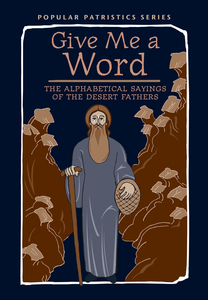|
|||
|---|---|---|---|
| This weekly bulletin insert complements the curriculum published by the Department of Christian Education of the Orthodox Church in America. This and many other Christian Education resources are available at http://dce.oca.org. | |||

Social scientist Arthur C. Brooks, writing about what constitutes true happiness, concluded that our society does us a disservice by encouraging us to seek luxury and wealth, to look for physical pleasure with numerous partners, and to strive for fame or even the fleeting celebrity of a reality show. These things, he stated, do not bring happiness. Brooks offers a simple formula for happiness: rather than love things and use people, we can love people and use things. He writes: "Of course you are driven to seek admiration, splendor and physical license...Declaring war on these destructive impulses is not about asceticism or Puritanism. It is about being a prudent person who seeks to avoid unnecessary suffering." The phrase "declaring war on these destructive impulses" will strike a chord with anyone who has read sayings of the desert fathers and mothers—people who set out deliberately to fight that very war head on. Brooks' statement that the war is "not about asceticism" reminds us that the desert dwellers, who were indeed ascetics, are not the only ones called to the war. It is for all human beings to engage in. "Give Me a Word: The Alphabetical Sayings of the Desert Fathers" (St. Vladimir's Seminary Press, 2014) is a collection of sayings (in alphabetical order according to the Greek alphabet) from desert-dwelling fathers and mothers. It offers the reader "some impression of the amazing life and sound teachings of those pioneers who abandoned 'the world' to live with Christ in the wilderness..." as the translator John Wortley writes in his helpful introduction. The sayings offer many insights. One story gives a helpful way of thinking about a well-known passage, "There is no greater love to be found than for somebody to lay down his life for his neighbor" (Jn 13:15) Abba Poemen taught that "if someone is being browbeaten and bears it without paying [his adversary] back, such a person is laying down his life for his neighbor." We may not all get the chance to "lay down our lives" literally for another person, but the forebearance described by Poemen is something we can practice. Sometimes desert dwellers didn't know their own power. Amma Sarah, while out walking, leaped over a stream. A passing stranger laughed at this, and she, not knowing God's grace had come upon her, said, "Be quiet, you are going to burst." When she turned, she saw the stranger's intestines spilling out. She fearfully prayed, "My Jesus, bring him back to life and I will never say such a thing again." We really do need to be careful about asking God for things. Desert ascetics could overdo it. Abba Sisoes, attempting to conquer the need for sleep, suspended himself from the precipice of Petra. An angel promptly detached him and forebade him to do or suggest to anyone else ever to do such a thing. Over-zealousness is a dangerous temptation. A glossary, good notes, and a wealth of stories make this book rewarding for any reader. |
|||
